
Murray Newton Rothbard was an American economist of the Austrian School, economic historian, political theorist, and activist. Rothbard was a central figure in the 20th-century American libertarian movement, particularly its right-wing strands, and was a founder and leading theoretician of anarcho-capitalism. He wrote over twenty books on political theory, history, economics, and other subjects.

Hans-Hermann Hoppe is a German-American academic associated with Austrian School economics, anarcho-capitalism, right-wing libertarianism, and opposition to democracy. He is professor emeritus of economics at the University of Nevada, Las Vegas (UNLV), senior fellow of the Mises Institute think tank, and the founder and president of the Property and Freedom Society.
The Ludwig von Mises Institute for Austrian Economics, or Mises Institute, is a nonprofit think tank headquartered in Auburn, Alabama, that is a center for radical libertarian thought and the right-wing paleolibertarian and anarcho-capitalist movements in the United States. It is named after the economist Ludwig von Mises (1881–1973) and promotes heterodox Misesian Austrian economics.

The Independent Labour Party (ILP) was a British political party of the left, established in 1893 at a conference in Bradford, after local and national dissatisfaction with the Liberals' apparent reluctance to endorse working-class candidates, representing the interests of the majority. A sitting independent MP and prominent union organiser, Keir Hardie, became its first chairman.
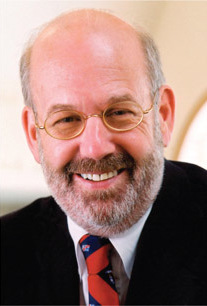
Llewellyn Harrison Rockwell Jr. is an American author, editor, and political consultant. A libertarian and a self-professed anarcho-capitalist, he founded and is the chairman of the Mises Institute, a non-profit promoting the Austrian School of economics.
Libertarian perspectives on foreign intervention started as a reaction to the Cold War mentality of military interventionism promoted by American conservatives like William F. Buckley Jr. which had supplanted Old Right non-interventionism. The Vietnam War split the uneasy alliance between growing numbers of self-identified libertarians and the Cold War conservatives. Libertarians opposed to the war joined the draft resistance and peace movements and created organizations such as Students for a Democratic Society. The split was aggravated at the 1969 Young Americans for Freedom convention where the burning of a draft card sparked physical confrontations among convention attendees, a walkout by many libertarians, and the creation of antiwar libertarian organizations. Left-libertarians generally oppose foreign military intervention on anti-imperialist grounds, while right-libertarians also generally oppose foreign military intervention and generally oppose all government foreign aid as well. In the United States, the Libertarian Party opposes strategic alliances between the United States and foreign nations.
Paleolibertarianism is a libertarian political activism strategy aimed at uniting libertarians and paleoconservatives. It was developed by American anarcho-capitalist theorists Murray Rothbard and Lew Rockwell in the American political context after the end of the Cold War. From 1989 to 1995, they sought to communicate libertarian notions of opposition to government intervention using messages accessible to working and middle-class people of the time, and combining libertarian free market views with the cultural conservatism of Paleoconservatism, while also opposing protectionism. The strategy also embraced the paleoconservative reverence for tradition and religion. This approach, usually identified as right-wing populism, was intended to radicalize citizens against the state. The name they chose for this style of activism evoked the roots of modern libertarianism, hence the prefix paleo. That founding movement was American classical liberalism, which shared the anti-war and anti-New Deal sentiments of the Old Right in the first half of the 20th century. Paleolibertarianism is generally seen as a right-wing ideology.
The Federation of Conservative Students (FCS) was the student organisation of the British Conservative Party from the late 1940s to 1986. It was created to act as a bridge between the student movement and the Conservative Party. It produced several magazines, and had regular Assembly meetings in which motions would be voted on. It had supported some controversial actions, such as the legalisation of various drugs, and the privatisation of the Trident nuclear missiles. There was continual tension between central party, which funded the organisation, and the Federation – which often used the funds on exploring unconventional policies.

Thomas Ernest Woods Jr. is an American author, podcast host, and libertarian commentator who is currently a senior fellow at the Mises Institute. A proponent of the Austrian School of economics, Woods hosts a daily podcast, The Tom Woods Show, and formerly co-hosted the weekly podcast Contra Krugman.
FOREST is a United Kingdom smokers' rights group primarily funded by the tobacco industry which campaigns against what it sees as "excessive regulation" of smoking and tobacco products.
Libertarianism is a political philosophy that upholds liberty as a core value. Libertarians seek to maximize autonomy and political freedom, emphasizing equality before the law and civil rights to freedom of association, freedom of speech, freedom of thought and freedom of choice. Libertarians are often skeptical of or opposed to authority, state power, warfare, militarism and nationalism, but some libertarians diverge on the scope of their opposition to existing economic and political systems. Various schools of libertarian thought offer a range of views regarding the legitimate functions of state and private power. Different categorizations have been used to distinguish various forms of Libertarianism. Scholars distinguish libertarian views on the nature of property and capital, usually along left–right or socialist–capitalist lines. Libertarians of various schools were influenced by liberal ideas.
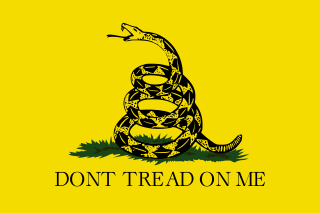
In the United States, libertarianism is a political philosophy promoting individual liberty. According to common meanings of conservatism and liberalism in the United States, libertarianism has been described as conservative on economic issues and liberal on personal freedom, often associated with a foreign policy of non-interventionism. Broadly, there are four principal traditions within libertarianism, namely the libertarianism that developed in the mid-20th century out of the revival tradition of classical liberalism in the United States after liberalism associated with the New Deal; the libertarianism developed in the 1950s by anarcho-capitalist author Murray Rothbard, who based it on the anti-New Deal Old Right and 19th-century libertarianism and American individualist anarchists such as Benjamin Tucker and Lysander Spooner while rejecting the labor theory of value in favor of Austrian School economics and the subjective theory of value; the libertarianism developed in the 1970s by Robert Nozick and founded in American and European classical liberal traditions; and the libertarianism associated with the Libertarian Party, which was founded in 1971, including politicians such as David Nolan and Ron Paul.
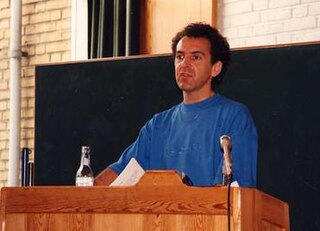
Christopher Ronald Tame was a British libertarian political activist. He is best known as the founder and Director of the Libertarian Alliance, a free market and civil liberties think tank.
Right-libertarianism, also known as libertarian capitalism, right-wing libertarianism, or colloquially as libright, is a libertarian political philosophy that supports capitalist property rights and defends market distribution of natural resources and private property. The term right-libertarianism is used to distinguish this class of views on the nature of property and capital from left-libertarianism, a type of libertarianism that combines self-ownership with an egalitarian approach to natural resources. In contrast to socialist libertarianism, right-libertarianism supports free-market capitalism. Like most forms of libertarianism, it supports civil liberties, especially natural law, negative rights, the non-aggression principle, and a major reversal of the modern welfare state.
David Ramsay Steele is a British author. He has published several works, such as is the author of The Mystery of Fascism: David Ramsay Steele's Greatest Hits, Orwell Your Orwell: A Worldview on the Slab, Atheism Explained: From Folly to Philosophy and From Marx to Mises: Post-Capitalist Society and the Challenge of Economic Calculation. Since 1985, he has been Editorial Director of Open Court Publishing Company. In 1997, he co-wrote with Michael R. Edelstein Three Minute Therapy: Change Your Thinking, Change Your Life, a psychological self-help book based on Albert Ellis's rational emotive behavior therapy, re-released in paperback, 2019. In 2013, he co-wrote with Michael R. Edelstein and Richard K. Kujoth Therapy Breakthrough: Why Some Psychotherapies Work Better than Others, a study of cognitive-behavioral therapy arguing for its superiority to psychodynamic therapy. From 1963 to 1973, Steele was a member of the Socialist Party of Great Britain (SPGB). In 1970, he became aware of the historical debate over economic calculation and between 1970 and 1973 underwent an intellectual conversion from SPGB Marxism to libertarianism. He later co-founded the Libertarian Alliance and in 1982 would be identified with one of the two factions that resulted in the split of the group.

Anarchism in Australia arrived within a few years of anarchism developing as a distinct tendency in the wake of the 1871 Paris Commune. Although a minor school of thought and politics, composed primarily of campaigners and intellectuals, Australian anarchism has formed a significant current throughout the history and literature of the colonies and nation. Anarchism's influence has been industrial and cultural, though its influence has waned from its high point in the early 20th century where anarchist techniques and ideas deeply influenced the official Australian union movement. In the mid 20th century anarchism's influence was primarily restricted to urban bohemian cultural movements. In the late 20th century and early 21st century Australian anarchism has been an element in Australia's social justice and protest movements.
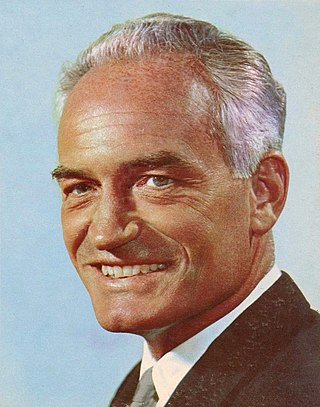
Libertarian conservatism, also referred to as conservative libertarianism and conservatarianism, is a political and social philosophy that combines conservatism and libertarianism, representing the libertarian wing of conservatism and vice versa.
Libertarianism in the United Kingdom can either refer to a political movement synonymous with anarchism, left-libertarianism and libertarian socialism, or to a political movement concerned with the pursuit of propertarian right-libertarian ideals in the United Kingdom which emerged and became more prominent in British politics after the 1980s neoliberalism and the economic liberalism of the premiership of Margaret Thatcher, albeit not as prominent as libertarianism in the United States in the 1970s and the presidency of Republican Ronald Reagan during the 1980s.
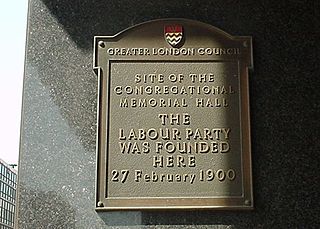
The Labour Representation Committee (LRC) was a pressure group founded in 1900 as an alliance of socialist organisations and trade unions, aimed at increasing representation for labour interests in the Parliament of the United Kingdom. The Labour Party traces its origin to the LRC's foundation.
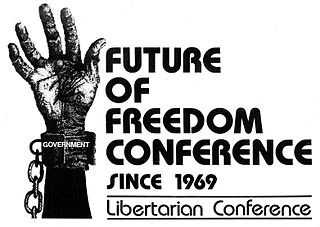
The Future of Freedom Conference is regarded as the first explicitly libertarian conference series ever held in the United States. Debuting in 1969, the conference's keynote speaker was Austrian economist Prof. Ludwig von Mises.











